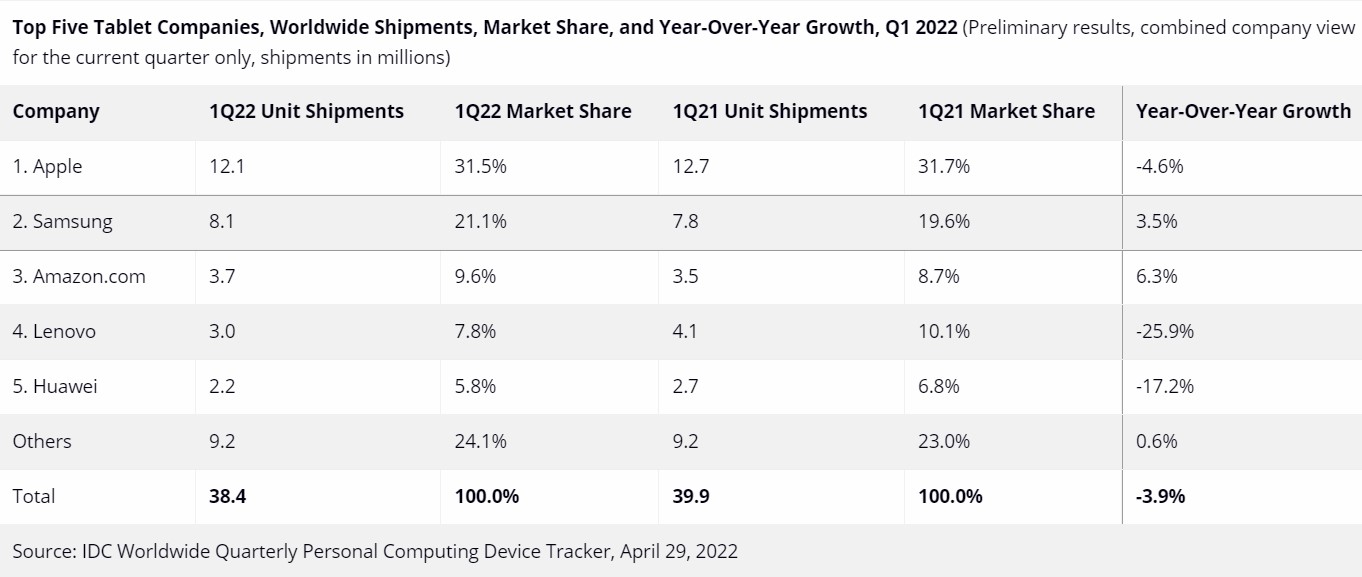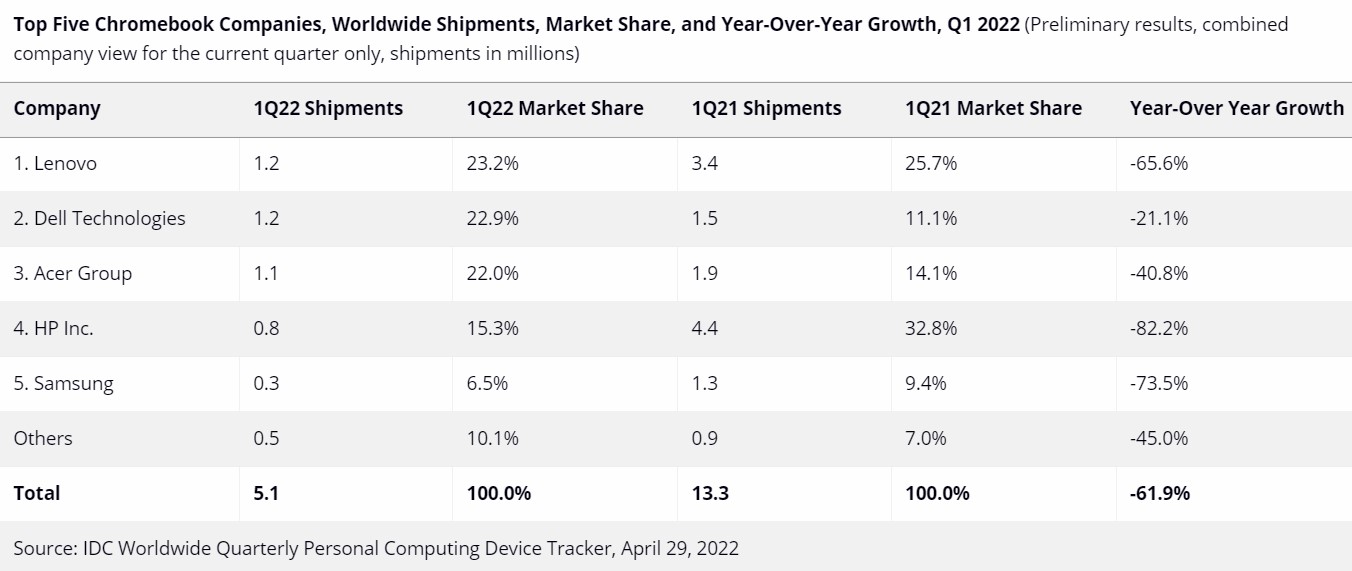2020 and 2021 were the golden years for tablets and Chromebooks, with record shipments in both years. It was because the pandemic pushed people more toward tablet and Chromebook purchases for work, studying at home, and entertainment. However, now with the pandemic situation stabilizing, the shipments of these devices are also declining, according to data from the IDC.
As per the report, global tablet shipments hit 38.4 million units in the first quarter of 2022, a 3.9 percent decrease year-on-year as demand declined. Shipments of tablets are still higher than the pre-pandemic level, however, growth has slowed down, indicating that the market is rebounding to normal seasonality. Furthermore, the intensive device purchases in 2020 and 2021 caused many customers to hold on to their freshly purchased tablets.

Chromebooks are not untouched by this trend and witnessed a 61.9% decline in shipments in Q1 of 2022. The decline in Chromebooks is unsurprising considering the building of inventories owing to lower demand over the previous three quarters, revealed Jitesh Ubrani, research manager with IDC.

While the global market contracted due to saturation in established markets, Asia/Pacific (excluding Japan and China) witnessed growth in the quarter due to many substantial investments in digital education in the area.
The report also mentions that several new players like Realme, OPPO, and Xiaomi have also entered this emerging segment. However, their volumes are not significant enough to move the market as of now.
Coming to the companies, Apple is dominating the tablet market with over 31.5% market share and shipments of 12.1 million units. However, the Cupertino company’s shipments of iPads have dropped by 4.6%.
Lenovo is leading the Chromebook segment with a 23.2% market share and shipments of 1.2 million units. However, the Chinese company is facing a sharp decline of 65.6% in Q1 of 2022.
RELATED:







